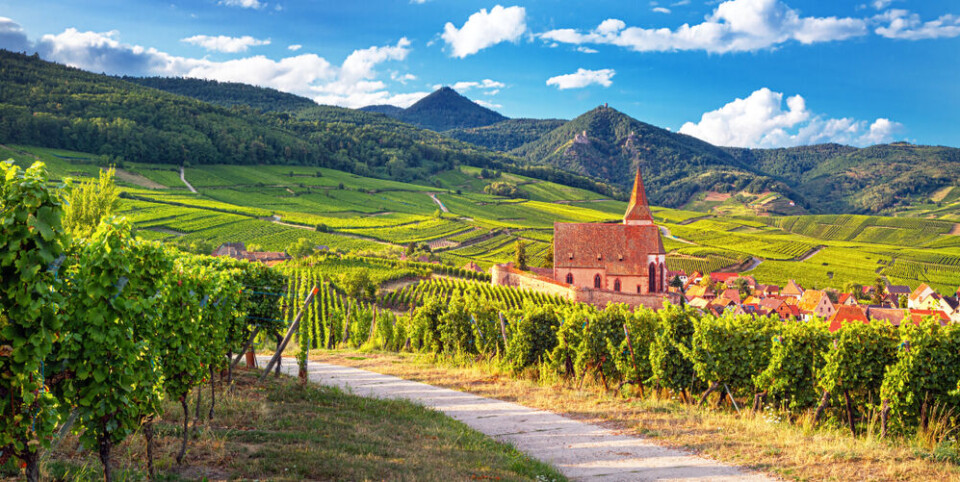-
Rugby vocabulary to know if watching the Six Nations in France
From un tampon to une cathédrale, understand the meaning of key French rugby terms
-
‘Reckless’: French winemakers react to Trump’s new threat of 200% tariffs
The US president made the comment after hearing that President Macron did not intend to join his Board of Peace initiative
-
How to order wine in a French restaurant
Our columnist looks at how to ensure a stress-free dining experience by understanding wine lists and navigating sommelier advice
Winery in France offers bottle refill scheme to cut carbon footprint
‘60% of our CO2 footprint came from packaging, due to the energy used to make glass,’ says one of the owners of the Alsace vineyard

A winery is asking customers to return their empty bottles in an effort to cut down on packaging waste and so reduce its carbon footprint.
Jean Huttard, an independent vineyard in Alsace established in 1860, is once again reusing the bottles, as well as offering a keg system to trade customers.
The scheme was initiated by siblings Hélène and Antoine Huttard, who took on the family business in Zellenberg in 2015 and have been trying to make it more sustainable.
While working towards organic wine certification, they started investigating where the business’s carbon dioxide (CO2) emissions came from.
Read more: How winemakers in France are reducing pesticide use
Hélène said: “We were both astonished to do the sums and find that 60% of our CO2 footprint came from packaging, due to the energy used to make glass.
“It meant that all the efforts to reduce CO2 during the grape-growing and wine-making process would have relatively little impact unless we changed the packaging.”
After looking through the firm’s records, the siblings noticed a definite shift in the bottling and sale of the wine when their parents took over the family business.
“About 35 years ago, it suddenly became much cheaper to buy new bottles rather than try to reuse bottles,” Hélène said.
“Part of it was to do with the labels: new glues meant they no longer came off with a simple soaking in water.
“This, in turn, led to the closure of the firms which used to specialise in cleaning and sterilising old wine bottles, which further added to the price of reusing bottles.”
The winery has always enjoyed a strong local customer base, which makes Hélène and Antoine’s reusable bottle scheme more viable. They buy the bottles, which have a swing-cap similar to old-fashioned beer and lemonade bottles, from an Italian supplier.
They are made from 80% recycled glass.
Read more: Are protective solar panels the future for French vineyards?
All the regulatory information about the wine is put on a small label on the cap, which means that the wine cannot be sold as an AOC Alsace, but as a vin de table.
The wine, either a white chardonnay or a red pinot noir, is sold for €7 and the bottle for €2, which is charged only once as long as it is returned.
For the cafe, hotel and restaurant trade, the winery has moved to a keg system.
The kegs are made of recycled plastic, which hold 30 litres of wine in a supple aluminium wineskin. Standard bar pumps connect to the kegs, which will keep for two years, or for six months once they have been opened.
“We planned all this with sales starting in 2020, which was not an ideal year, given the lockdowns, but the response has been positive,” said Hélène.
“Owners appreciate not having to store and manage bottles, and temperature control is that much easier.”
The winery continues to sell wine in single-use bottles, but Hélène is confident the proportion of reusable bottles will keep growing in future.
“Many clients who are buying the new bottles are young – they get it,” she said.
Related stories:
AOP or IGP, doux or liquoreux…How to interpret French wine labels
Explained: Sulphites in French wine
French study to find if living near vineyard increases pesticide risk
























